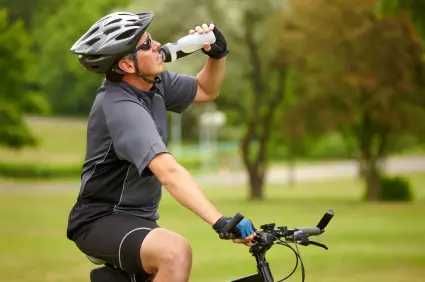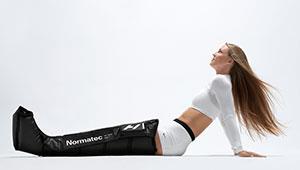
One of the things that La Vuelta is known for, besides its red-hot racing, is the red-hot thermometer from the heat of summertime Spain. With that comes the need to hydrate. Or does it? Let's try to bring some rationale perspective to the whole idea of proper fluid replacement.
It is about 40 years since Gatorade first came onto the scene. Since then, it and other sports drinks have become seen as essential by everyone from top athletes to Joe Q Public. We've seen this in every youth sport from youth soccer to my boys in gymnastics, not to mention folks exercising in the gym for 30 minutes and to the general public as an everyday drink. At the same time, walk down any supermarket and you'll see a long aisle of dozens of choices in sports drinks.
More: Which Fluid Hydrates Best?
How much of this change is from sports drinks fulfilling an actual need, versus how much does this popularity stems from clever marketing and fulfilling a corporate need? The very respected medical British Medical Journal published an investigative expose on the science and marketing behind the sports drink industry, slamming the science and the marketing.
The article, in brief, is VERY damning to the sports drink industry, claiming that corporate concerns have artificially created an unnecessary market. In the process, the article claims that many of the scientists (including my post-doctoral supervisor and other respected scientists I know well) are hopelessly mired in conflicts of interest positions. Another major claim is that "dehydration" has been artificially promoted as a disease, with sports drinks as the therapeutic drug of choice. Finally, the study claims to take a critical look at hydration research and finding it severely lacking in scientific rigour.
More: 5 Ways to End Muscle Cramps
For the Prosecution
This is a pretty long list of charges. Let's look at each in a bit more detail the specific charges from BMJ:
1. Many of the scientists involved in hydration research are either directly funded by sports drink companies, or else their institutions (e.g. United States military) are major customers for sports drinks. This may be fine, in and of itself, if these conflicts are noted and declared.
2. What BMJ took issues with was that many of these same scientists are the same ones writing public policy concerning hydration and the use of sports drinks. For example, many of the scientists mentioned above were the co-authors of the American College of Sports Medicine's position statement on fluid replacement during exercise (both the 1996 and updated 2007 documents).
3. The ACSM, the pre-eminent exercise physiology society internationally, has among its major sponsors Glaxo-Smith Kline (Lucozade), Coca-Cola (Powerade) and PepsiCo (Gatorade).
4. The scientific message promoted by ACSM is largely that thirst is not a reliable indicator of thirst, and therefore individuals must pre-empt thirst and instead drink as much as possible to prevent any dehydration from occurring.
5. Other scientific evidence, namely that thirst can indeed be an accurate measure for the need to drink, exists. In recent years, this has been spearheaded by Professor Tim Noakes, a physiologist from South Africa. This research is claimed to have largely been ignored by ACSM and other policy makers.
6. Hyponatremia (low blood salt concentrations), which can occur from drinking too much water, is a bigger physiological and clinical danger than mild to moderate dehydration.
7. Apart from the necessity for hydration, a separate issue is that the ideal fluid replacement has been changed from water to a specific sports drink, as it's harder to sell bottled water than a sports drink.
8. Much of the marketing for sports drinks is directly targeted at children and the general public, rather than heavy exercisers. This is claimed to stem from the need to develop a larger market beyond just the relatively limited target of heavy exercisers.
9. In reviewing hydration research, the report claims that much of the existing literature is of low quality, with inadequate sample sizes, inappropriate performance tests, and many other research design and statistical issues.
- 1
- of
- 2



Discuss This Article